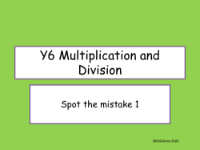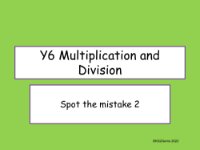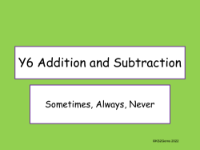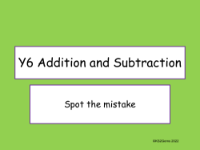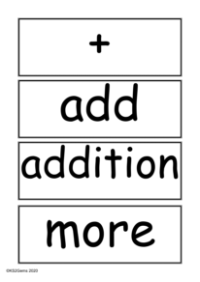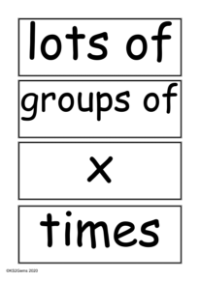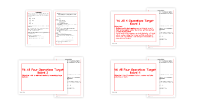Multiplication and Division Sometimes Always Never
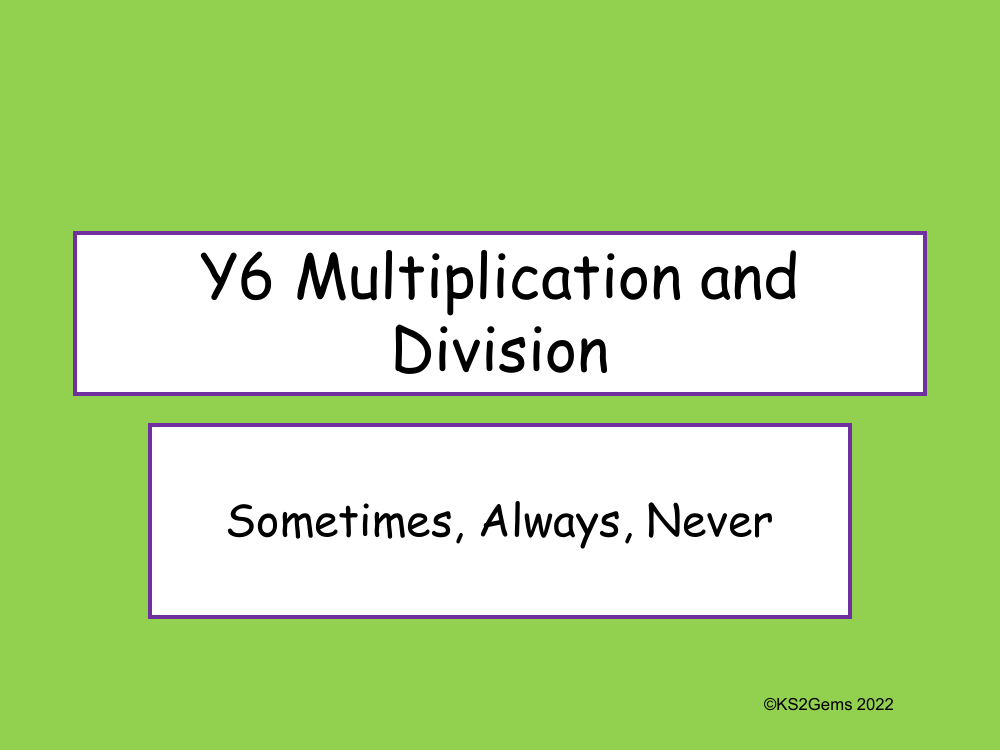
Maths Resource Description
The "Sometimes, Always, Never" activity is a thought-provoking exercise aimed at Year 6 students to deepen their understanding of multiplication and division concepts. In this activity, children are presented with various mathematical statements and are tasked with determining whether these statements are 'sometimes true', 'always true', or 'never true'. This exercise encourages critical thinking as students must provide examples or counterexamples to support their conclusions. Furthermore, the activity challenges students to not only identify the truth value of a statement but also to explain the conditions under which 'sometimes' statements hold true. Additionally, they are encouraged to rephrase 'sometimes' statements to make them universally true or false, thereby enhancing their grasp of mathematical principles and vocabulary.
Statements such as "Only even numbers have common multiples" and "1 is a factor of all numbers" prompt students to explore number properties and divisibility rules. For instance, they must consider whether statements like "To determine divisibility of a 3-digit number by a single-digit number, add the digits of the 3-digit number together; if the total is a multiple of the single-digit number then the 3-digit number is divisible by the single-digit number" are accurate. The activity also delves into misconceptions, such as whether "All odd numbers are prime numbers" or "A cube number is double a square number", challenging students to use their knowledge to debunk or verify these claims. Ultimately, the "Sometimes, Always, Never" activity is an excellent way for children to engage with mathematical concepts, promoting a deeper and more nuanced understanding of multiplication and division.
